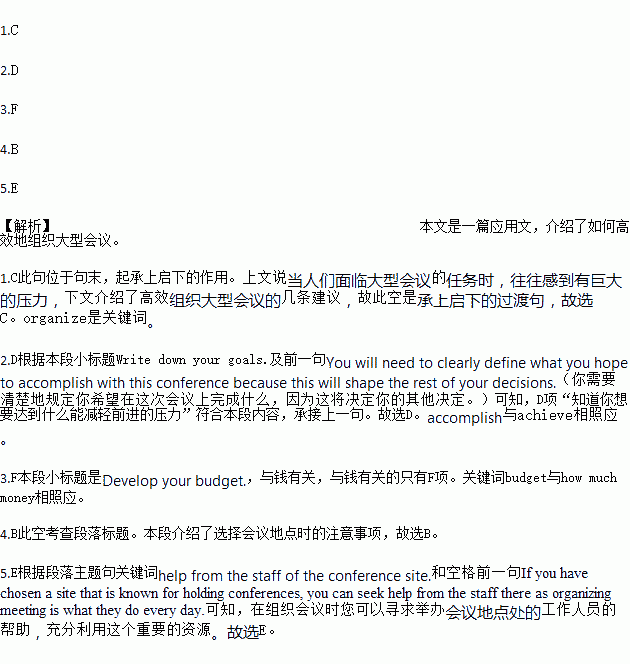题目内容
Have you ever had the following experience? You have been given the task of organizing a conference, which includes a must-do list about a mile long. There is the conference site, the guest list, the materials, the technology and even the food and drink to think about and plan. If you are beginning to feel the stress, slow down and take a breath. 1..
Write down your goals. You will need to clearly define what you hope to accomplish with this conference because this will shape the rest of your decisions. 2..
Develop your budget. 3.. Then break that budget into different parts such as conference site, materials and speakers’ fees. Stick to your budget, and make sure your assistants are keeping their monetary limits as well.
4.. When searching for locations, keep in mind the number of participants, the convenience of the location, parking and closeness to public transportation, airports and hotels. Your goal in finding a place to hold the conference should be making it as easy as possible for participants to attend.
Seek help from the staff of the conference site. If you have chosen a site that is known for holding conferences, you can seek help from the staff there as organizing meeting is what they do every day. 5.. They should be able to answer any questions or concern and provide advice when needed.
Of course, full preparations also include a walk-through. Go to the site and meet with the staff the day before to be certain that everything is in place and to take care of any small details.
A. Decide on a schedule for the meeting
B. Choose your conference site
C. Read the following skills to figure out how to organize a conference
D. Knowing what you want to achieve eases the stress of moving forward
E. Make full use of this important resource
F. You can do nothing without knowing how much money you have to spend
G. Seek help from your colleagues to support every aspect of the meeting

